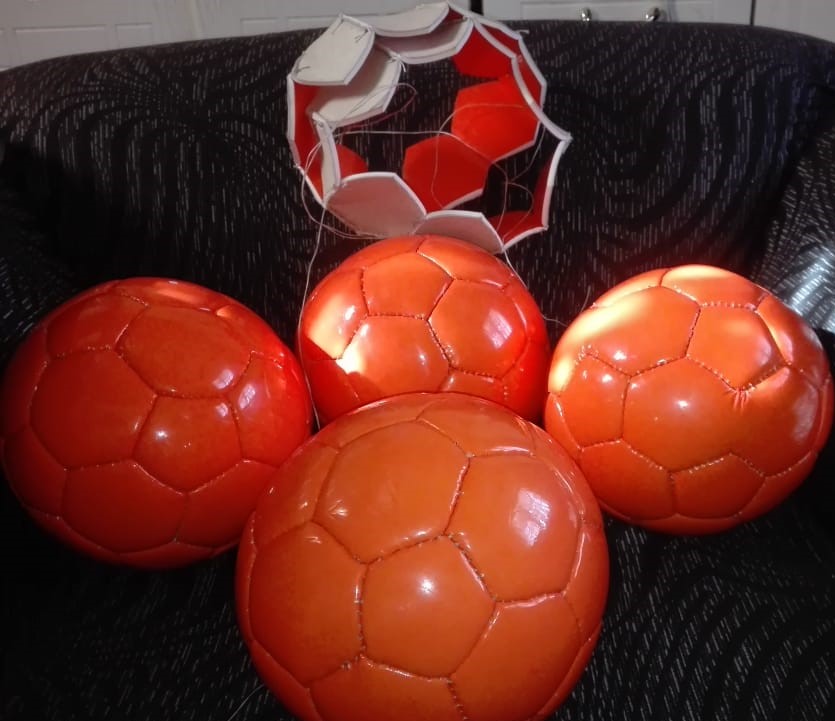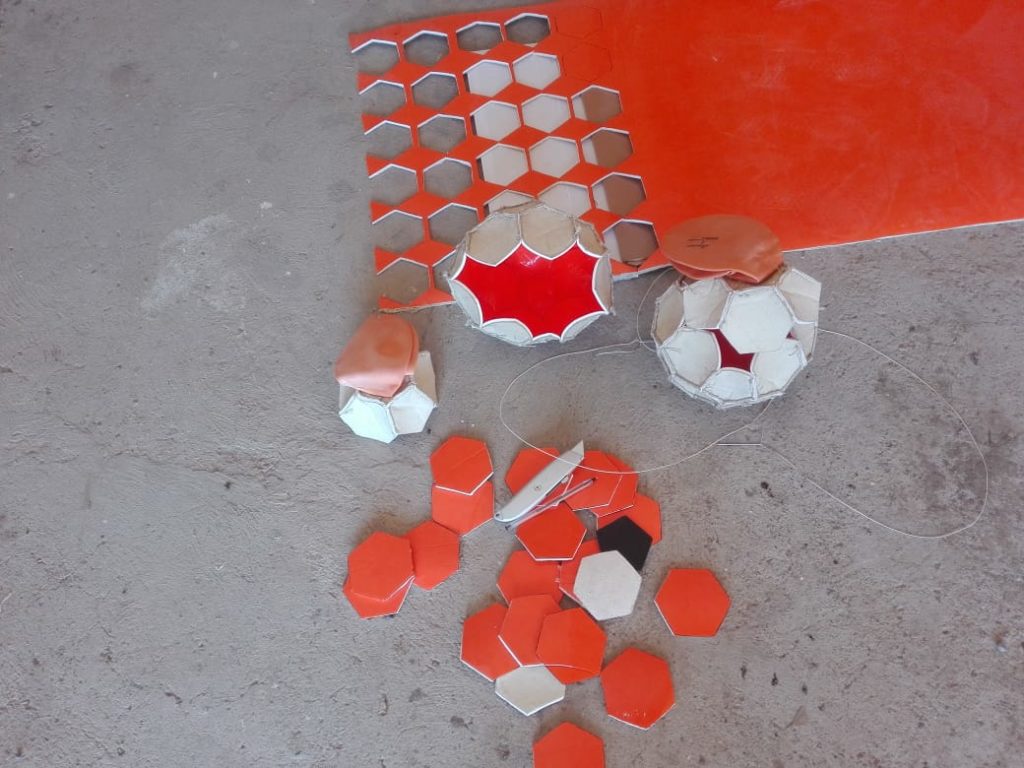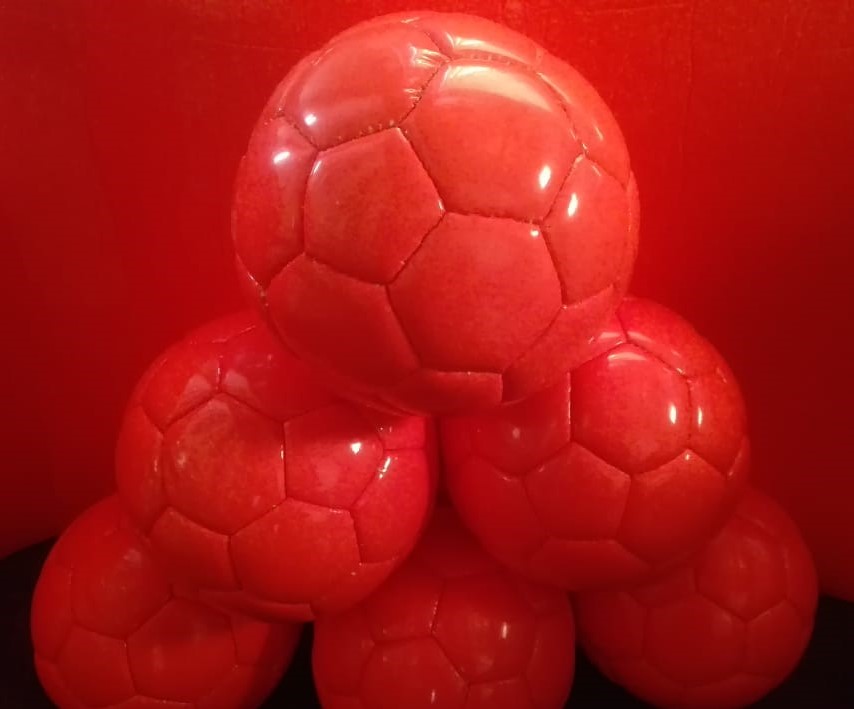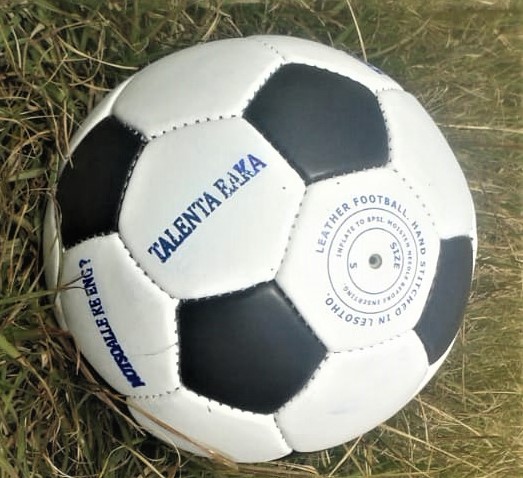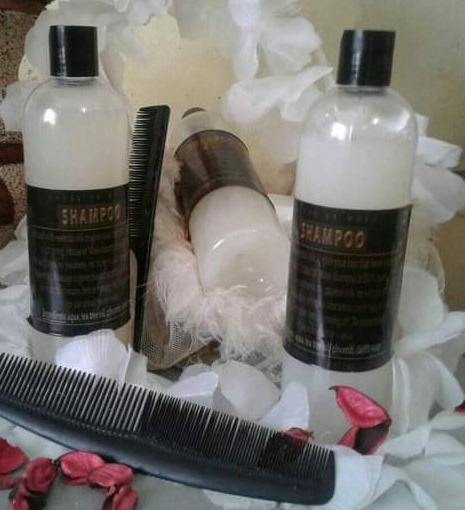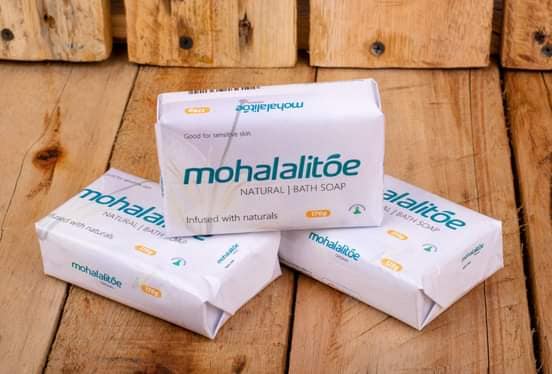Mamello Konyana from Qoaling Maseru grew with a special love for playing soccer balls. He loved soccer. Little did he know that he would end up making the soccer balls himself. His skills in the area of ball-making was first made famous by the National University of Lesotho (NUL) Innovation Hub’s TV program called Tsa Mahlale funded by the UNDP. Now he is on his way to rank among the few in Africa who have ever produced soccer balls.
Africa, like the rest of the world, is crazy about soccer. But don’t be surprised if the balls it uses for playing soccer come from as far as China.
Today we bring a story of the young man who dared not only to play soccer but to make soccer balls.
[Join the NUL Innovation Hub’s PhuthaLichaba, the Future Bank of the People, here : www.phuthalichaba.com]
Just when he was at primary school, he was already showing good signs as a player. In fact, he excelled as a goalkeeper. “We used to have a privilege of being watched by the then assistant to the Mighty Arsenal F.C. coach,” he said. “In the end, I was one of those he picked to join the development side of the club.”
It was an honour in those days to be part of Arsenal, not the least because Arsenal was not only the best team in Lesotho, it was actually a reliable challenger of African Soccer giants. That. is. true. The team that produced the legends like Asiah Phakisi, Lefika Lekhotla and Tlhokomelo Api was a formidable team. It took an unexpected place in the last 16 of the African Champions Cup back then.
Those were the good old days.
Arsenal’s veteran manager Styles Phumo, who was the man behind its fortunes, would end up coaching the likes of Ria Stars, Bloemfontein Celtic, Nathi Lions, Atlie and, of course, Bafana Bafana itself.
So being in the development side of such a team would put you immediately in the league of the rising stars among your peers.
However, luck was not on his side. “I still remember a promise made to us that we were about to join the premier team. I was excited.” He said they were promised promotions after performing particularly well in previous matches. Then, for reasons that are still a mystery to him, Arsenal collapsed, never to recover.
Time moved and then, oops! South Africa was going to host a soccer world cup, the first in Africa. It was a plate of silver apples for the lovers of soccer. But for him particularly, it brought goodies. “At that time I was part of a youth organisation trying to mitigate the effects of climate change,” he said. “Then, all of a sudden, there was this man from Germany who, it appeared, came to assist South Africa to prepare itself for the world cup.”
For some reason, the German fellow crossed into Lesotho and did not want to return without imparting some skills. “Since we were organised into a group of youths, we were an easy target.” So his group underwent a training on how to make soccer balls. It was a brief training but that was the spark he needed. The rest he would learn by himself.
Which he did.
Although many were given this skill, “I can safely say I am the only one who showed interest and who was willing to do something about it.” Many of his peers were asking, “but what are we going to do with this skill because we don’t have a factory that makes soccer balls here in Lesotho.” In their thinking, you should only train in something if that training will be place you in an already existing job.
The thinking that we should train so we can “start” our own factories is still foreign in Lesotho.
Poor youngsters then, who should blame them when even the adults we have to today still think along those lines?
“I did a lot on my own to perfect the skills of making the balls,” he continued to relate. “When I thought I was there, I did what almost every person who thinks he has something good to contribute to the development of Lesotho does. I went to the Government, LNDC in this case.”
He was asking for funding so he could buy the leather and the machine. The leather used for making the balls is very specialized and it is found in Asia. He was directed to a bank for help through the Partial Credit Guarantee Scheme. The bank of course, required him to have what it called a collateral.
“I didn’t quite get what that meant but it was as if they were saying I should also put some money on the table. I asked myself, “why do this people ask me to give them some money when I’ve come to them to request money?”
Little did he know that he was born in a country that doesn’t understand development finance—a country which is incapable of investing in brilliant ideas.
With time, he got a job and, “instead of buying a 4+1,” he said, “I bought a machine and leather and I got started.”
[Join the NUL Innovation Hub’s PhuthaLichaba, the Future Bank of the People, here: www.phuthalichaba.com]
